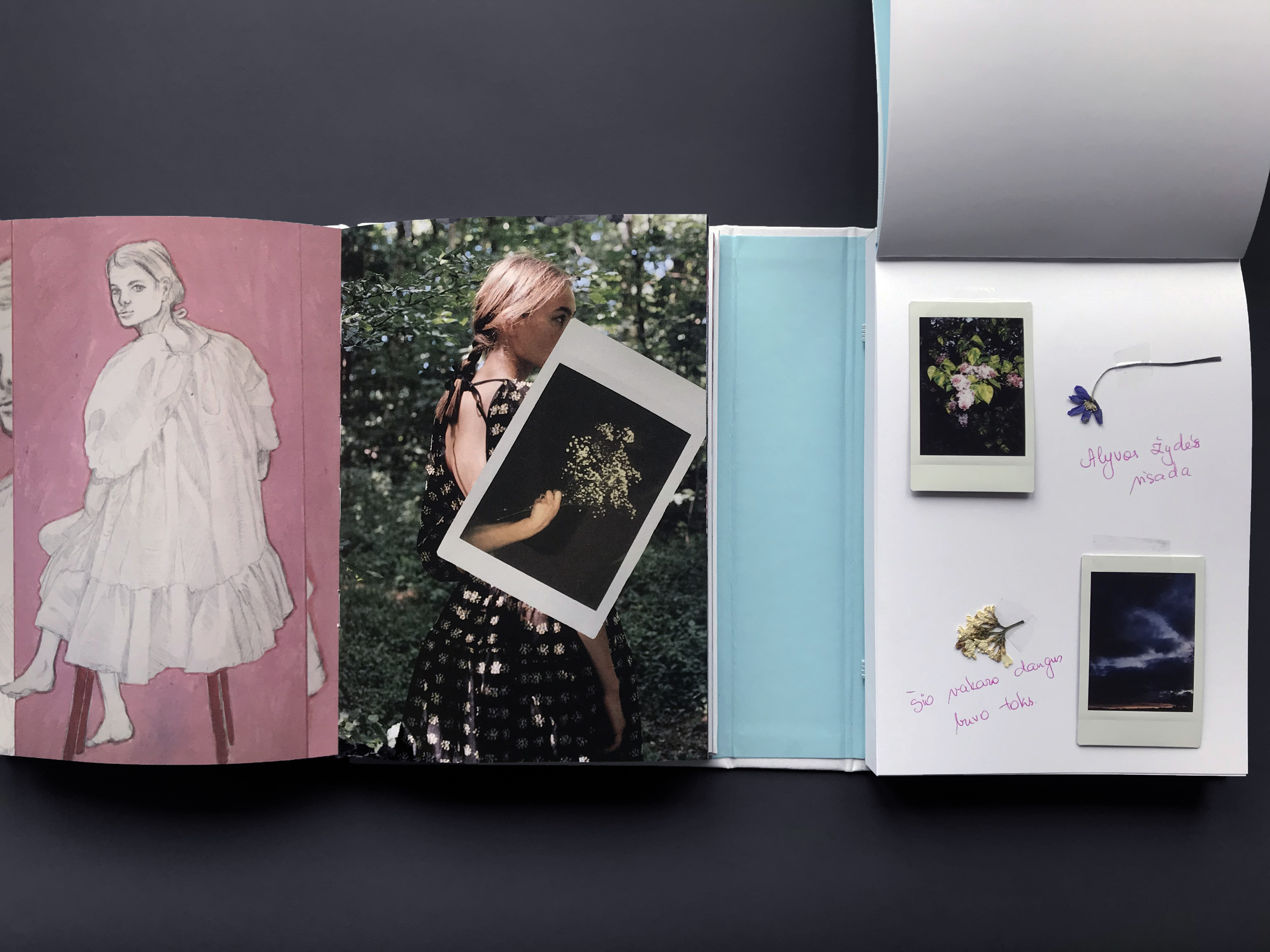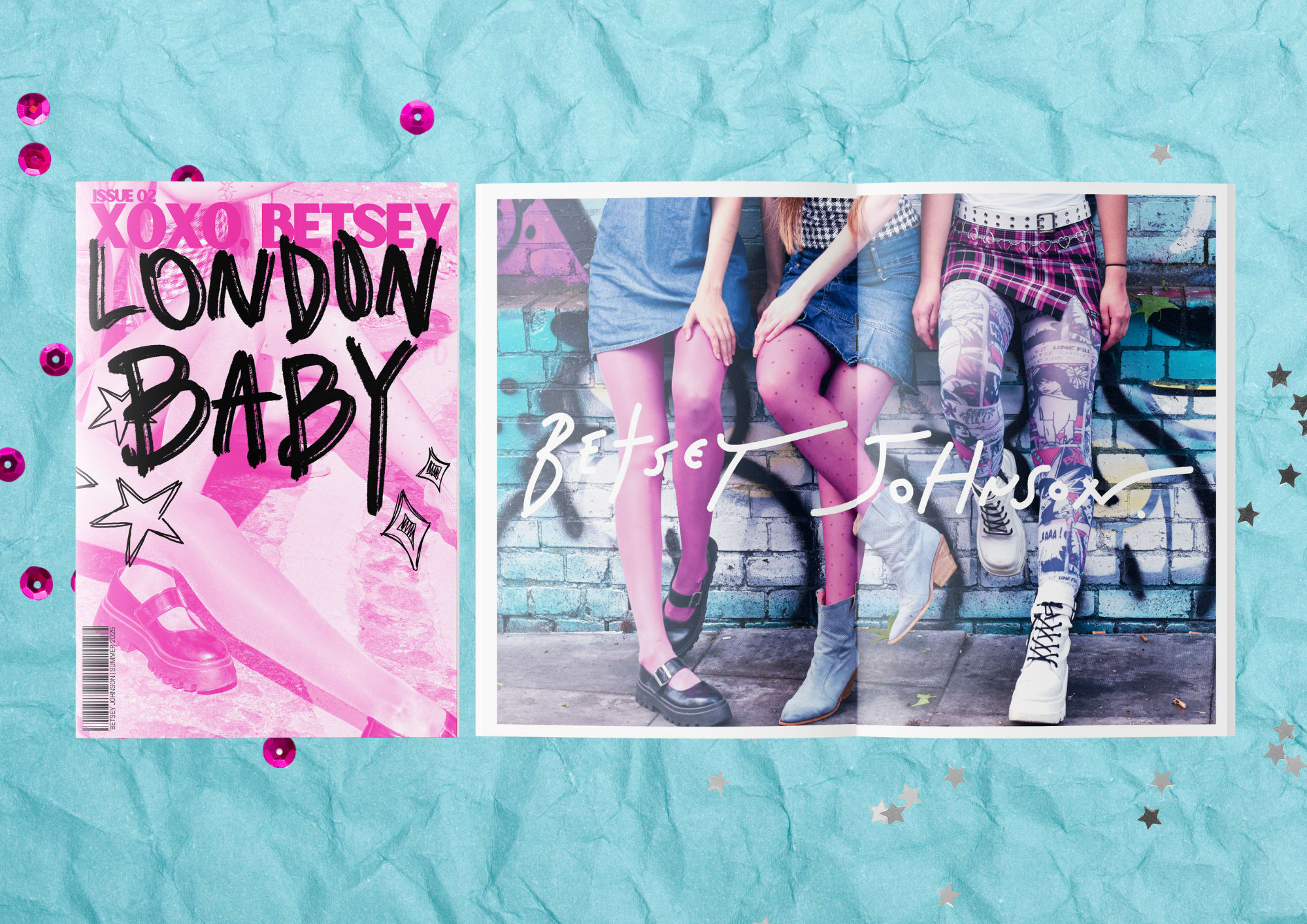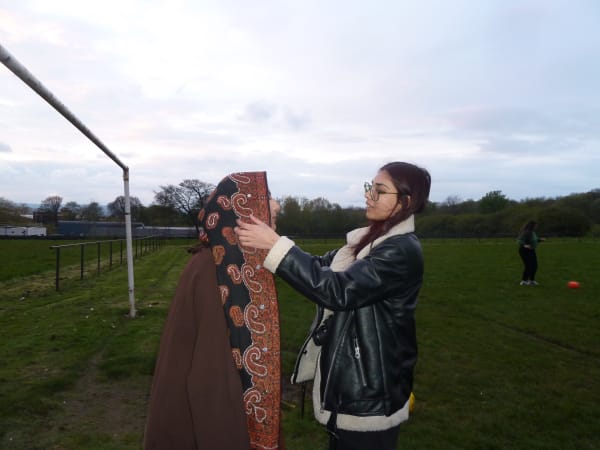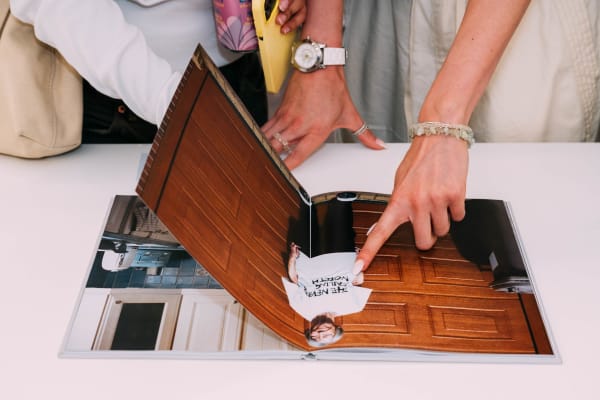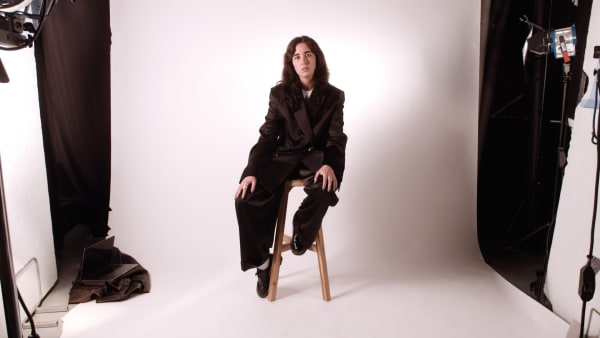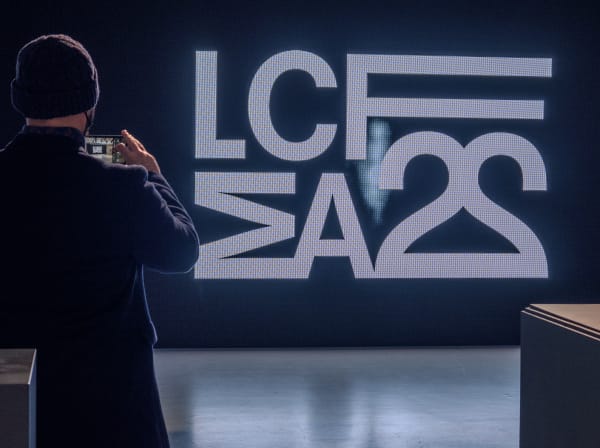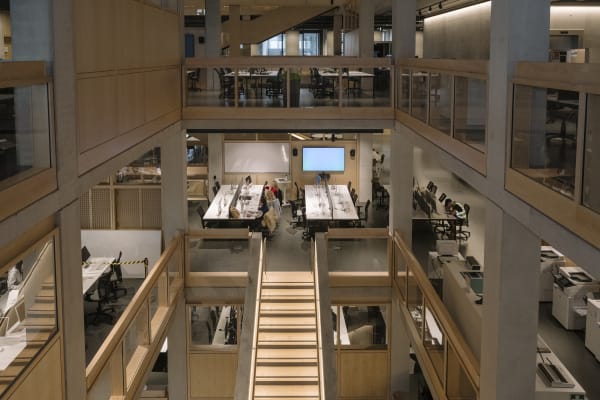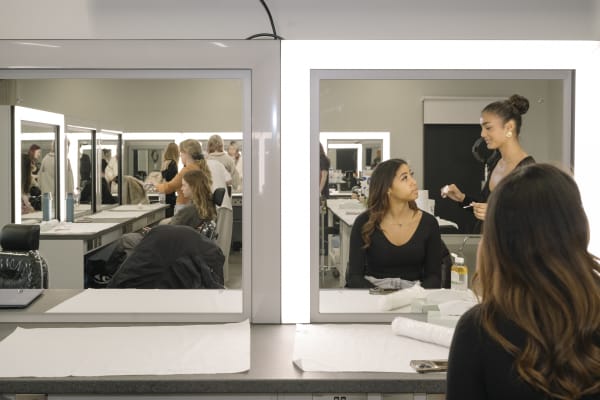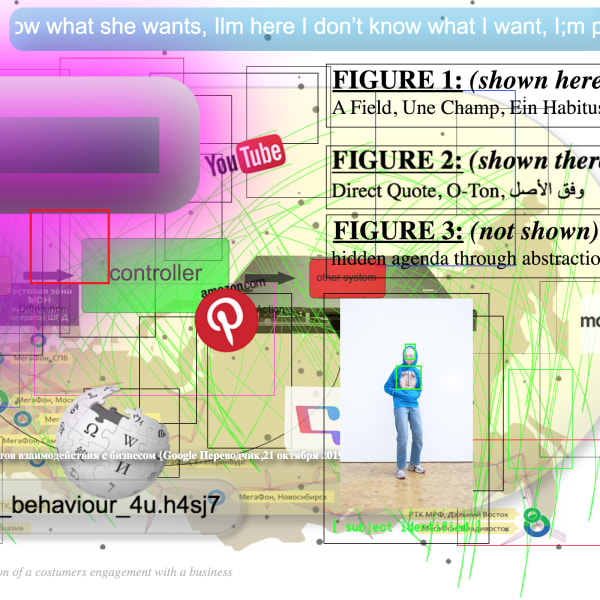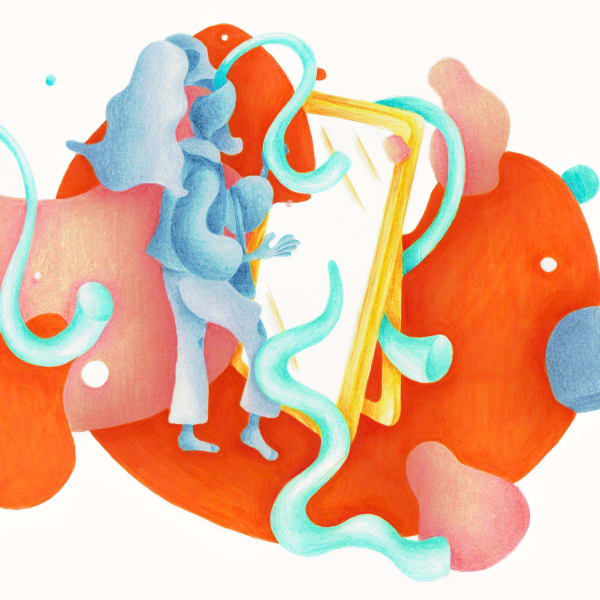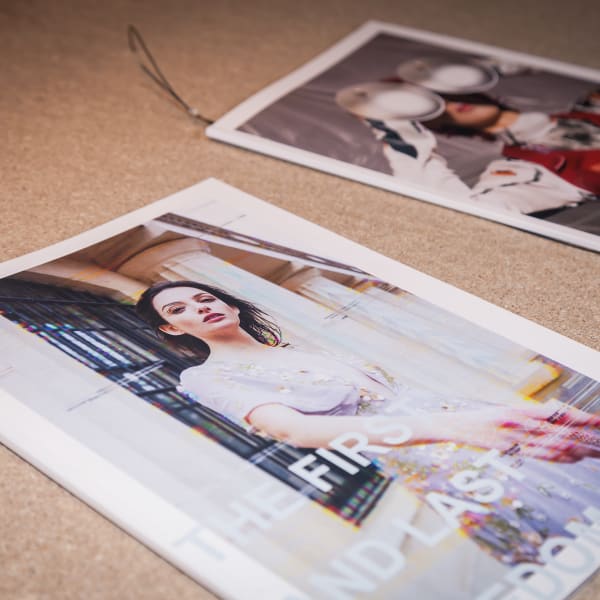Course units
Stage 1 (Level 4)
The first year of the course allows you to familiarise yourselves with the key components of fashion communication and introduces you to the global media landscape. All modules are compulsory and in addition to core units, students are provided with technical and academic support to enhance your creative competency and research skills.
The units you will study in Year 1, Stage 1, Level 4 are as follows:
- Introduction to Fashion Communication: (20 Credits)
You will be introduced to your course, its subject specialism and effective learning at undergraduate level. You’ll learn the practices and knowledge base needed to understand your discipline and develop skills for independent & collaborative learning, reflection and self-development.
- Fashion Cultures and Histories: (20 Credits)
You will take a philosophical and theoretical approach to the study of fashion and its role in representing and communicating identity. Understand key ways of thinking about fashion across its cultural, historical, social and political contexts. Engage in debate and analysis of fashion as a key marker of social and cultural change and a means of understanding the relationship between individuals and communities.
- Fashion PR & Branding Principles: (40 Credits)
You will be introduced to PR and branding methods in the fashion industry, framed by global perspectives and understand their intrinsic relationship to the media. In a group, you’ll formulate a brand concept and develop storytelling techniques that advocate positive change. You’ll also produce an individual submission to demonstrate your knowledge of the media and its interdependence within the field of public relations.
- Fashion Communication: Community of Practice: (20 Credits)
Develop your understanding of the fellow disciplines in the Fashion Communication programme. Consider how this community of practice can contribute to a more socially conscious future and produce a proposal for a project that promotes change making through collaboration.
- Fashion Experiences: Concept and Communication: (20 Credits)
Explore how brands develop seasonal presentations to promote fashion collections on a global stage. Working in groups, you will experiment with creative methods to develop an event concept and communication strategy that is reflective of industry practices and appropriate for both your brand and audience. Individually you will assess the environmental and social impact of fashion weeks and reimagine a more equitable future for fashion week.
In Stage 1 you are required to complete 120 credits at level 4 in order to progress to Stage 2.
Stage 2 (Level 5)
Year 2 focuses on the development of professional skills and provides the opportunity for you to consolidate skills gained so far and apply to an industry context. You are provided with further opportunities to enhance your technical skills and network with peers and industry.
The units you will study in Year 2, Stage 2, Level 5 are as follows:
- Reputation Management and Corporate Strategy: (20 Credits)
In this unit, you will devise, develop, and present a strategic plan in response to a crisis. You will also explore how brands build positive reputations through the crafting and implementation of long-term strategies that consider social and environmental justice.
- Critical Issues in Fashion Research: (20 Credits)
Expand your critical understanding of fashion in a global context and examine emerging debates in fashion research. You’ll engage in collaborative research around current and emerging cultural issues and be guided through researching and writing about fashion across its social, historical, political and cultural contexts, building on the first-year unit Fashion Cultures and Histories. You’ll develop your own independent research path and interests.
- Fashion Communication: Situating Your Practice: (20 Credits)
Explore and develop your fashion communication identity and position yourself within the professional fashion eco-system. You will examine the possibilities available to you now and in the future and determine the skills you need to develop your practice and professional profile. You will consider how your work has purpose, addressing your motivations and values.
- Fashion Communication: Professional Practice (20 Credits)
You have an option to choose:
Placement
Undertake a short- term placement in industry which is suitable for your own development and career aspirations. The Graduate Futures Placement Team provides support to get a placement and you can directly apply to companies.
OR
Portfolio
Experiment with creative practice and develop an outcome for your portfolio in response to an industry brief. Using a process of design principles you will define, ideate, and test your ideas with an external audience in mind. There will be support throughout from both academic and industry practitioners.
- Innovation in Communication: (40 Credits)
Explore how brands embrace emerging technologies and current innovations that impact the way fashion communication tells stories. You will be allocated a brand and undertake research to create a communication campaign reflective of your discipline from concept to realisation. Acquire the skills necessary to produce creative tactics that engage with innovation in the field of communication.
In Stage 2 you are required to complete 120 credits at level 5 in order to progress to Stage 3.
Optional Diploma Year
Industry DIPS
This optional diploma can be taken between years 2 and 3. With support from your tutors, you’ll undertake an industry placement for a minimum of 100 days/20 weeks. As well as developing industry skills, you’ll gain an additional qualification upon successful completion.
Enterprise DIPS
This optional diploma can be taken between years 2 and 3. With support from your tutors, you’ll undertake an enterprise placement year where you will explore a business idea from proposal to minimal viable product (MVP). As well as developing enterprise skills, you’ll gain an additional qualification upon successful completion.
CCI Creative Computing
Between years 2 and 3, you can undertake the year-long Diploma in Creative Computing. This will develop your skills in creative computing alongside your degree. After successfully completing the diploma and your undergraduate degree, you’ll graduate with an enhanced degree: BA (Hons) Fashion Public Relations and Communication (with Creative Computing).
CCI Apple Diploma
Between years 2 and 3, you can undertake the year-long Diploma in Apple Development. This will give you an opportunity to become an accredited apple developer alongside your degree. After successfully completing the diploma and your undergraduate degree, you’ll graduate with an enhanced degree: BA (Hons) Fashion Public Relations and Communication (with Apple Development).
Stage 3 (Level 6)
Year 3 will allow you to focus on your individual practice, through an extended project, preparing you for the transition from student to industry practitioner. You will develop an ability to manage your own learning and deploy techniques of analysis and enquiry when producing your final year outcomes.
The units you will study in Year 3, Stage 3, Level 6 are as follows:
You have the option to choose:
- Creative Industries: Theories and Practices: (40 Credits)
In this unit, you’ll complete an independent research project and engage with industry professionals to learn about current debates and issues that shape and inform cultural production across media, communication and performance. You’ll be encouraged to respond to these debates in the form of an extended essay with supporting research materials. This unit will equip you with critical thinking, literacy and communication skills for both academic and professional contexts.
or
- Fashion Communication: Practice and Research: (40 credits)
Explore an area of interest in Fashion Communication by combining your creative practice with a theory and process led enquiry. Your chosen topic should relate to your field of practice, addressing contemporary and critical debates. You’ll learn about practice-based research, define a research area, and respond to it, testing your ideas in preparation for the Communication Project unit, through a creative process and academic writing.
- Context for Communication Project: Fashion Public Relations & Communication: (20 Credits)
Building on research skills already acquired on the course, this unit will broaden your knowledge of primary research skills to enable you to gather valuable insights on a brand of your choice. This unit will allow you to gain specialist knowledge in a particular area to inform the next project as well as enhance your career prospects.
- Communication Project: (40 Credits)
In response to the Context for Communication Project, you will devise a cohesive strategy for a 12-month communication campaign for your chosen brand. It must be relevant, contemporary and meaningful. You will use idea generation techniques to aid the conceptualisation of your campaign, evidencing experimentation and risk taking.
- Professional Presentation: (20 Credits)
This unit will consolidate your learning and prepare you for future employment or postgraduate opportunities. You will be supported by tutors and industry practitioners to develop your outcomes to an industry level; and professionally present yourself and your work.
In Stage 3 you are required to complete 120 credits at level 6.
A 20-credit unit is approximately equivalent to 200 hours of learning time, which includes a mixture of taught time, independent study and assessment.
All students are entitled to a tutorial package that consists of:
- one induction tutorial (group or one to one);
- one tutorial per block for the duration for their course of study at LCF;
- group tutorials as required;
- an appropriate level of confidentiality.
